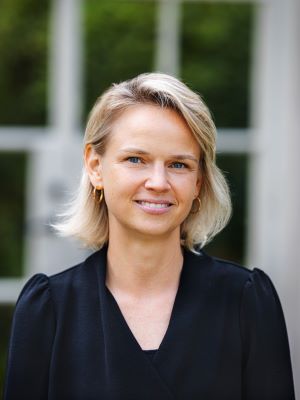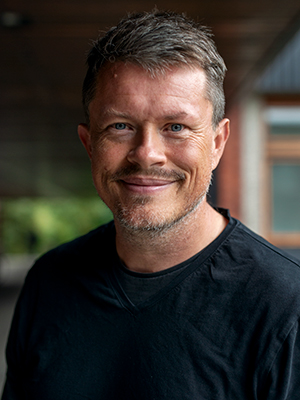The projects join the ranks of prestigious awards from the EU's Horizon Europe framework program to the Faculty of Social Sciences this year. A total of eight researchers and their projects from the Faculty have received EU support: Four Advanced Grants from the European Research Council (ERC), two Marie Sklodowska-Curie doctoral networks, and now finally two thematic collaborative projects. One (SUPA) is to be coordinated by The department of political science.
In total, the EU has granted just over 100 million Norwegian kroner to researchers at the Faculty of Social Sciences this spring.
"These are very pleasing news. Congratulations to the principal investigators and all the skilled colleagues in the research environments and the administration for their achievements," lauds research dean Lars T. Westlye.
Effective administration
Steinebach from the Department of Political Science heads the project "Sustaining Public Administration in Modern Democracies" (SUPA), which aims to examine how public administration in six European countries can develop strategies for enhancing the capabilities of the public sector to cope with the escalating challenges of administrative overburdening.
"Public administrations in advanced democracies are increasingly overburdened. Administrative overburdening arises from a continuous increase in the number of domestic rules and policies coming from EU that require implementation and the relative stagnation in administrative capacities," says Steinebach.
This discrepancy between the rules up for implementation and the administrative resources available results in suboptimal policy outcomes, low-quality public services, and inconsistent implementation practices, he explains.
Rules and regulations
"We aim to develop a tool that enables policymakers to predict the implications of rule growth stemming from the policy measures they adopt," Steinebach continues.
They call the tool the Legislative Growth Predictor Tool, with LegGPT as the abbreviation. Steinebach notes that government actions tend to “explode” in size during the implementation phase, as different tiers of government append elements to the initial policy provisions.
"We hope and expect that this potential for rule growth can be modeled and predicted based on the formulation of the initial legal texts and the level of discretion granted to the implementing authorities," he emphasizes.
The administrations in Denmark, France, Germany, Spain, the Netherlands and Norway are to be scrutinized.
In addition to the thematic grant that was recently awarded, Steinebach also became a partner in an ERC project in April.
Social dialogue during the green and digital transition
Ines Wagner at ARENA is a partner in the project "Encouraging a Digital and Green Transition through Revitalized and Inclusive Union-Employer Negotiations" (EGRUiEN). They will study how the digital and green transition are changing our economies and the way we work.

"The goal is to find out how we can best ensure a just green and digital transition for all parties involved," she says.
To achieve this, they will analyze the institution and practices of social dialogue and how it can protect, represent, and include precarious and non-standard workers as well as protect core workers from falling into precarity.
"We propose that social dialogue can play a dual role: not just responding to and rectifying inequalities and precarious conditions in the workforce, but also proactively aiding industries in adapting to sustainable changes," she points out.
Energy Production in Norway
This proactive approach, according to Wagner, ensures the ongoing social inclusion of workers, especially those in carbon-intensive industries as these are phased-out.
The researchers plan sector-based case study research in Austria, Estonia, Finland, Italy, Poland, Slovakia, Spain, UK and Norway. The sectors they focus on are automotive production, energy production, care services and transport on demand.
"Given the relevance of energy production in Norway, we will lead this sectoral work package," Wagner informs.
Society's biggest challenges
The thematic calls in the EU's Horizon Europe framework program are to address several of humanity's greatest challenges, such as health, culture, creativity, and inclusive societies, societal security, digitalization, industry, and space programs, climate, energy and mobility, and food, bioeconomy, natural resources, agriculture, and the environment.

"In light of the faculty's annual plan, it is particularly heartening to see that our researchers are succeeding in an intensely competitive international environment also within the thematic calls, which focus on major and complex societal challenges," says research dean Westlye.
Solving such challenges often requires coordinated contributions from various disciplines. Something that, according to Westlye, is reflected in the composition of experts in the projects. Multidisciplinary international research projects have great potential but are challenging to coordinate and administrate, he acknowledges.
"A lot of work goes into such applications. All credit to our researchers and administrative staff who take on these tasks with great commitment, and not least to the projects that did not quite reach the top in the competition this time," concludes the research dean.
